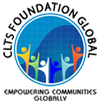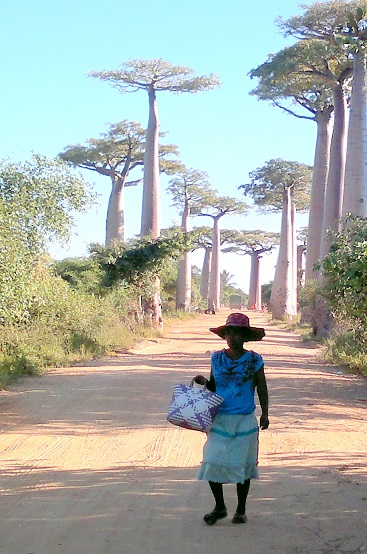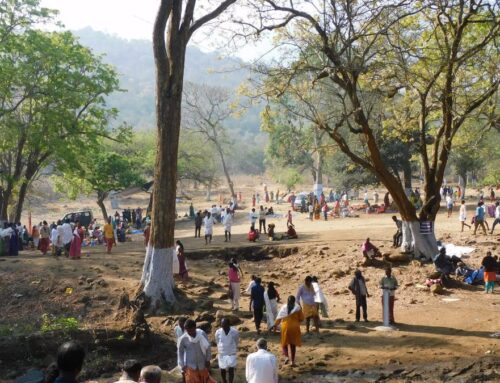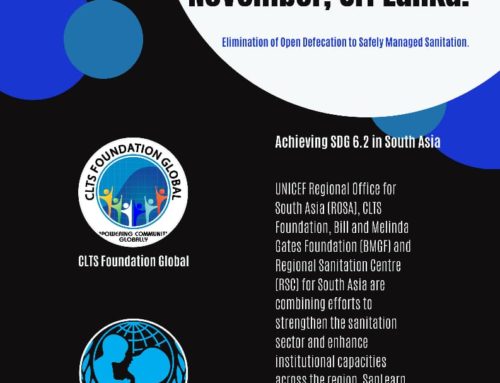Fonds d’Appui pour l’Assainissement (FAA) – the programme of the Global Sanitation Fund (GSF) in Madagascar – called a workshop to share the objectives, process and results of research carried out by CLTS Foundation Global into emerging best practices and innovation leading to striking results in the FAA programme since 2011. Participants were wider stakeholders working in sanitation at the national level as well as representatives from the regions and districts, particularly the sub-grantee organisations who are the key implementing actors at grassroots level.
After introductory words by the President of the Programme Coordinating Mechanism, Michèle Rasamison and Secretary General of the Ministry of Water, Madame Bebiarivola Rakoto, an overview of the CLTS Foundation Global study objectives, rationale and a brief look at highlights and learnings was presented. More detail was then given through presentations concerning three key themes of the document “Promising Pathways – Innovation and Best Practice in CLTS at Scale in Madagascar: Towards an Open Defecation Free Country” which will publish the findings of the study in the near future.
The three presentations covered:
- The striking way the programme has been able to involve multiple local actors in scaling up. There are now over 12000 Natural Leaders, Community Consultants and Champions working at local levels. For some sub-grantees, their role has evolved to one of facilitation of these actors rather than direct implementation.
- The strategy and model for successful scale up in Vakinankaratra region. This model follows a ‘U-shaped curve’ of 1) preparation by garnering support for the process at all different administrative levels; 2) making a strong foundation of ODF villages through direct triggering by the sub-grantee and 3) using new actors generated in the foundation process to spread to neighbouring areas through triggering and follow up themselves. Essential tools in this model are the strategic selection of locations in which to make the strong foundation and ‘institutional triggering’ at all administrative levels.
- Evidence of the impacts of ODF on other sectors. The three examples discussed were improvements in food security via better collection of fruits from fruit trees in former OD areas; various livelihoods effects by better prices for coffee, lychee etc. in ODF areas; and economic opportunities generated by the emergence of a market in locally appropriate sanitation hardware.
Dr Rija Fanomeza, Director of the FAA programme, then presented a selection of the key lessons learned in brief:
- ODF villages are possible everywhere – there is no insurmountable reason why any village should not become ODF.
- We cannot trigger village by village, we must select strategic villages for direct work.
- It is important to get model villages in place from which other villages can learn.
- It has been important to reinforce and reanimated the WASH Coalition to support scaling up.
- Institutional triggering must be implemented at all levels to get key actors in place throughout.
- It has been important to reinforce collaboration among different actors at all levels – this is the basis for involving the maximum numbers of actors in scaling up.
- We must ensure rigorous follow up by actors who have an understanding of the spirit of CLTS.
- Working with existing structures to align the power, for example vested in TLS, with the sanitation movement is a key step.
- Testimonies from ODF villages strengthen and give immense power to triggering processes.
- We should use the media but be careful not to undermine the element of surprise.
- It is important to identify, understand and encourage local innovation.
- Mobilising the private sector is key to moving along the sanitation ladder.
- Giving value and recognition to local innovation can help the innovation process to mount a serious challenge to the problem of financial inaccessibility.
- The role of the Executing Agency is to accompany the SGs. It is important not to over-estimate local capacity – but rather, to facilitate improved performance.
- Providing sharing opportunities between SGs to exchange experience and identify and propagate successes is an effective learning strategy.
- These emerging successful experiences should be fed into the Action Plan for future implementation.
- Periodic evaluation; results based performance assessment and instigating a spirit of competition between SGs are all important components.
- There should be a clear methodology to capture impacts on health, to use for future advocacy.
- Similarly, there should be a way of capturing and communication other post ODF benefits.
- For sustainability, it is important to involve all the major players including ministries at different levels.





Leave A Comment